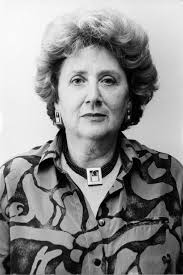Eva Alterman Blay
Country:
Brazil
Company:
Government
Her mother was from Bessarabia. The 1960s. Left-wing political factions were mobilizing themselves against the oppressive regime. Young academics and re- volutionaries were breathing Marxist ideas. Eva Blay, who had just graduated in Social Sciences, chose a theme for her master's thesis: the female worker. People laughed at me. Studying women's condition was perceived as something irrelevant and apolitical. When she went into the factories, Eva realized that it was handled as an unimportant issue indeed: women did not have any rights.
Her fight, solitary at first, grew as the feminist movement in the country deve- loped. She participated in the creation of the Feminine Movement for Amnesty. The 1980s. As the country was going through the transition to democracy, Eva supported the creation of specific public policies for women. She presided the State Council for the Condition of Women of São Paulo, when she helped implementing a day-care program there was only one in the city and creating the first Police Precinct dedicated to assisting women. She called the government's attention to controversial issues such as equal pay and a system to stimulate for the candidacy of women for political office. She continued her career as a professor at the University ofSão Paulo, where she founded, in 1985, the Center for the Study of Women and Gender (Nemge). She became a se- nator in 1992; her term ended in 1995.
